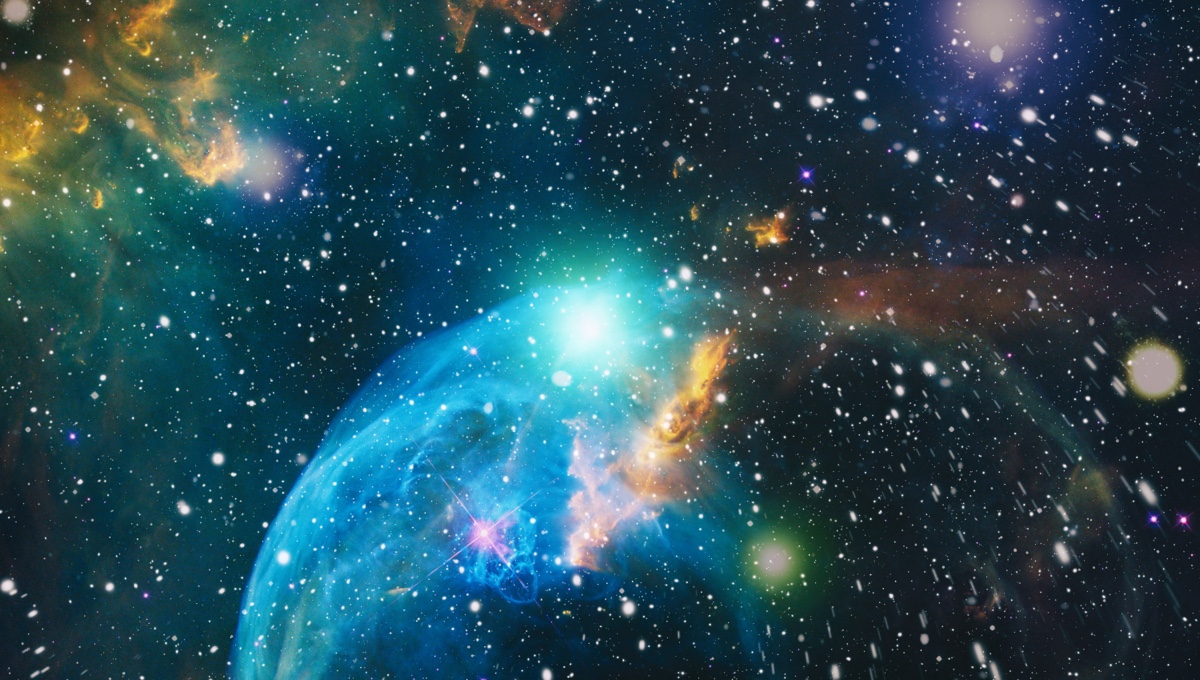By Craig Thomas
Synopsis: David declared, “The heavens are telling of the glory of God; and their expanse is declaring the work of His hands.” Hebrews 3:4 affirms, “For every house is built by someone, but the builder of all things is God.”
Psalm 104 praises the LORD for the great power which He demonstrated in creation and the flood. We live in a world that dismisses the Creator. If one believes in divine creation, he is considered an ignorant rube, an “unscientific” ignoramus.
I have been blessed in my life with a good education, and was able to obtain advanced degrees from some of our country’s most prestigious universities. I was blessed to study science at the feet of teachers of exceptional intellect and knowledge. To their credit, I must admit that none of my former professors ever mentioned creation, nor did they dogmatically teach Darwinian evolution, materialism, naturalism, etc. Such things were never on the “front burner.” To their credit, they focused on real science and brought neither materialistic, naturalistic, nor atheistic philosophies into the picture.
However, in the popular scientific world, such is not the case. One cannot watch a “science-based” program on television, like A&E, PBS, Science Channel, National Geographic Channel, etc. without being bombarded by the materialistic, naturalistic, atheistic, evolutionary viewpoint. Anyone who dares challenge this viewpoint is immediately considered a hopeless dimwit on par with those believing in a flat earth or the Loch Ness monster. These self-appointed arbiters of truth claim that they possess the scientific “high ground,” point their fingers at creationists, and make the charge that we are “unscientific.” However, in reality, they are unscientific!
Allow me to explain briefly. Their camp subscribes to the “Big Bang” theory. They believe space-time-matter popped into existence from nothing some 13.77 billion years ago. This scenario is in direct and total violation of science’s most fundamental law: The Law of Cause and Effect. This law affirms that every material effect (in this case, the physical universe) must have an adequate antecedent or simultaneous cause. This law has been investigated for millennia, dating back at least to the writings of Aristotle and Plato (350-360 BC). Every student of logic knows that this law is the ultimate canon of all the sciences. Without the Principle of Causality, proven by millennia of empirical data, all the sciences would crumble to dust.
Creationists respect this fundamental law. The Bible articulated this principle long ago when the writer of Hebrews stated, “Every house is built by someone, but He who built all things is God” (Heb. 3:4). The Universe is the grand Effect and God is the grand Cause, for “In the beginning God created the heavens and the earth” (Gen. 1:1). The evolutionist’s denial of this great principle leaves them with the unscientific dilemma of trying to explain how our inestimably complex and immense universe could come into existence without a cause. Robert Jastrow, founder and former director of the Goddard Institute for Space Studies at NASA, an evolutionist, wrote:
The Universe, and everything that has happened in it since the beginning of time, are a grand effect without a known cause. An effect without a known cause? That is not the world of science; it is a world of witchcraft, of wild events and the whims of demons, a medieval world that science has tried to banish. As scientists, what are we to make of this picture? I do not know (Jastrow, 21).
Scientifically speaking, according to the well-accepted principle of causality, there had to be a cause for the universe. Yet evolutionists are forced to admit a great effect without an antecedent great cause. Who’s being “unscientific”?
Other tenets of evolution are also in conflict with the empirical evidence of scientific inquiry. About two centuries ago, brilliant scientists, including Louis Pasteur, proved that abiogenesis is false. Abiogenesis was the theory that non-living matter gave rise to living matter. For example, that flies could spontaneously generate from rotting meat. Without abiogenesis, there is no starting point for the theory of evolution. Empirical evidence unequivocally proves abiogenesis is false; yet evolutionists are forced to believe that at some point in the distant past, lifeless chemicals, through random, unintelligent physical processes, made the unimaginable leap to form living creatures. To believe Darwinian evolution, evolutionists must subscribe to a theory invalidated and debunked by empirical science. Who’s being “unscientific”?
Sir Fredrick Hoyle, a famed and well-respected English astronomer and evolutionist, estimated:
The likelihood of the formation of life from inanimate matter is 1 to a number with 40,000 noughts after it (1040,000). . . It is big enough to bury Darwin and the whole theory of evolution. There was no primeval soup, neither on this planet nor any other, and if the beginnings of life were not random, they must therefore have been the product of purposeful intelligence (Hoyle, 148).
Hoyle also compared the probability of the spontaneous generation of life to the probability of 1050 blind people each simultaneously solving Rubik’s cube. He then said, “The notion that not only biopolymers but the operating program of a living cell could be arrived at by chance in a primordial organic soup here on earth is evidently nonsense of a high order.” The late Dr. Carl Sagan (host of the original PBS television series Cosmos) put the odds of the spontaneous generation of life even higher at 1 in 102,000,000,000. That’s preposterous! Who’s being “unscientific”?
Despite these insurmountable odds, evolutionists desperately cling to their theory. Why? It certainly cannot be because science is on their side, for their theory requires a false and debunked theory, abiogenesis, to be true. Abiogenesis is contrary to the empirical evidence cherished by all true scientists, as it has been repeatedly proven invalid. Rather than recognize the “eternal power and deity” of our Creator (Rom. 1:20), the naturalist/materialist is left with only the power (?) of unintelligent matter and time. Regarding spontaneous generation producing life from non-life, Dr. George Wald, a Nobel Laureate, said, “given enough time it will almost certainly happen. . . Time is in fact the hero of the plot. . . Given so much time, the ‘impossible’ becomes possible, the possible probable, and the probable virtually certain. One has only to wait; time itself performs the miracles.” And creationists are those charged with telling “just so” stories?! When one considers the overwhelming evidence God provides in His creation, is it any wonder Paul said, “they are without excuse” (Rom. 1:20)?
There you have it from the minds and tongues of leading evolutionists. They persist in believing the theory, although scientific evidence disproves its plausibility. Who’s being “unscientific”? As we contemplate the LORD as our grand Creator, let us join in psalm—and praise Him!
I will sing to the LORD as long as I live; I will sing praise to my God while I have my being. May my meditation be sweet to Him; I will be glad in the LORD. May sinners be consumed from the earth, and the wicked be no more. Bless the LORD, O my soul! Praise the LORD!
Holye, F. and C. Wickramasinghe. Evolution from Space. New York: Simon & Schuster, 1984.
Jastrow, Robert. Until the Sun Dies. New York: W.W. Norton & Co., 1977.
Wald, George. “The Origin of Life.” Scientific American. (August, 1954: 44-53).


